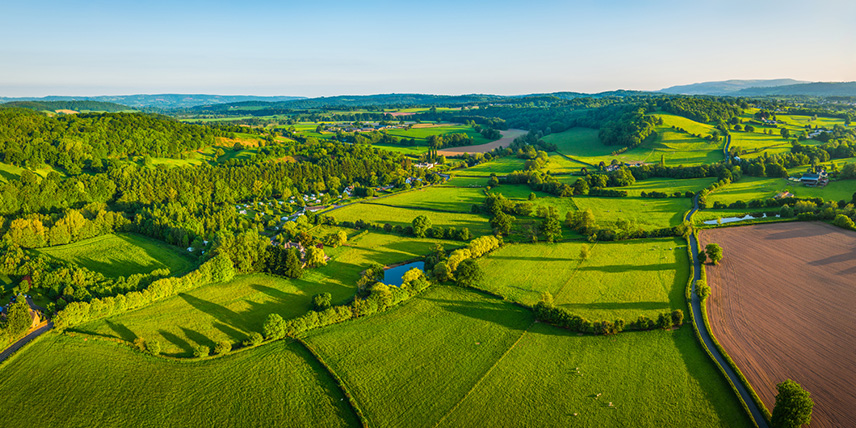Acquiring land for the first time can be a thrilling but lengthy process. Before you decide on a parcel of land, there are numerous factors to consider.
Will you be financing the purchase? If yes, will you get home construction financing or one of the available land loans?
Ensuring your personal and professional comfort requires understanding your property needs. Proper due diligence is crucial when buying land to ensure satisfaction.
A Great Location
When it comes to deciding where to live, several factors should be taken into consideration, especially if you're looking to settle down for the short or long term. If you're raising a family, privacy is a crucial factor to consider. Look for neighborhoods that are safe and have low crime rates. Additionally, proximity to good schools is essential. You should also consider the proximity to your workplace and the ease of accessing freeways, as this can impact your daily commute and overall quality of life.
If you're looking to retire near the beach, you should still consider these factors. However, you may also want to think about the cost of living, especially if you're on a fixed income. Moreover, you may want to factor in proximity to medical facilities, access to public transportation, and community services for seniors. Beachfront properties may be costly, so you may want to consider properties that are further inland but still within reasonable driving distance of the beach. Ultimately, the right location will depend on your unique needs and preferences, so it's essential to take the time to research and weigh your options carefully.
The Costs of the Land
If you are considering purchasing land but cannot buy it outright, then a land mortgage may be an option worth exploring. With a land mortgage, you would make payments towards the purchase of the land over a set period. It's important to note that improved land, meaning land that already has infrastructure such as utilities or roads, is generally easier to develop and may be more attractive to lenders. When seeking a land mortgage, lenders may require a down payment of up to 20% of the land's value. You may also need a construction loan if you plan on building on the land. It's important to research and compare lenders to find one that offers the best terms and rates for your situation.
If obtaining a loan is not feasible, you can consider asking the landowner for financial assistance. Some landowners may be willing to offer financing or allow for a lease-to-own arrangement.
When considering purchasing land, it's important to factor in other costs such as property taxes, insurance, and maintenance. You should also research any zoning or building restrictions that may impact your plans for the land. By doing your due diligence, you can make an informed decision about whether purchasing land with a mortgage is the right choice for you.
Check for Land Issues
When considering the purchase of a property, it's important to conduct thorough research and speak with a knowledgeable realtor who is familiar with the area. One crucial aspect to consider is whether the zoning requirements and guidelines permit you to use the property in the way you intend. Additionally, it's important to evaluate the land and natural resources for any potential restrictions or limitations that may impact your intended use.
For example, you may need to consider factors such as soil quality, water availability, and potential environmental hazards. By consulting with a Realtor who can provide you with in-depth knowledge and guidance, you can make an informed decision about whether a particular property is the right fit for your needs and goals.
What utilities are available?
When purchasing a rural property, it is important to be aware that some homes may not have access to essential utilities such as water and electricity. This could mean that you will have to incur additional expenses to install these amenities.
Before making a final decision, you must take into account the availability and quality of cable and phone services in the area, as well as other necessities that require a power and water source. This could include appliances such as heating and cooling systems, kitchen appliances, and laundry machines.
It is also important to weigh the cost of living in a rural area against the cost of modern luxuries. While living in the countryside can be peaceful and offer a sense of privacy, it can also mean that you have to sacrifice certain conveniences that you may be accustomed to in an urban setting.
If traditional electricity is not available, you could consider options such as solar power. However, it is important to keep in mind that this can also come with additional costs. Additionally, a well and a reliable septic system are necessary for a rural home. These are important factors to consider when deciding on purchasing a rural property.
Are there environmental hazards?
If you are considering investing in a new property, it is essential to take into account several factors before making any decisions. One crucial aspect to consider is the quality of the soil where the property is located. A thorough analysis of the soil can help identify any potential issues, such as nutrient deficiencies, pH imbalances, and soil compaction, that could affect the growth and yield of crops or vegetation.
Another important factor to consider is the presence of pests, predators, and contaminants. This includes checking for any signs of infestation, such as insect damage or rodent droppings. It is also essential to look for any potential predators that could threaten the safety of your family, including snakes, bears, or coyotes.
Additionally, it is vital to check for any signs of contamination, such as chemical storage tanks or polluted water sources. These contaminants can pose a significant risk to your health and the environment, and it is critical to identify them before investing in the property.
To ensure the safety and well-being of your family, it is recommended to conduct a preliminary survey of the land before making any investments. This survey can help identify any potential hazards and ensure that the property is safe and suitable for your needs.
What are your natural resource rights?
If you are planning to purchase rural property, it is important to keep in mind that different types of rights could affect your land's usage. For instance, water rights, mineral rights, timber rights, and access rights are some of the important considerations that you need to take into account. You should also be aware that there may be other companies that have exclusive rights to natural resources such as minerals, timber, or oil on your land. Additionally, state laws may impose restrictions on your usage of the water, which could limit your ability to irrigate crops or water livestock. Therefore, it is crucial to thoroughly research and understand the underlying rights associated with the property before making a purchase.
Another crucial aspect to consider is access rights. It's important to ensure that you have permission to access the property, especially if it is connected to government property or private land. This is because you may need to cross someone else's property to access your land, and if you don't have the right permissions, you may face legal issues. It is also worth noting that access rights can be affected by factors such as easements, rights of way, or other legal agreements. Therefore, it is advisable to consult with a legal professional to review the relevant documents and ensure that you have all the necessary access rights in place.
Final Thoughts
Buying land can be a great investment, but it is important to do your due diligence beforehand. Consider factors such as location, zoning laws, and potential environmental hazards. It is also wise to consult with professionals such as real estate agents, surveyors, and lawyers to ensure a smooth and successful transaction. With careful consideration and guidance, you can make a land purchase that will bring you joy and financial gain for years to come.





